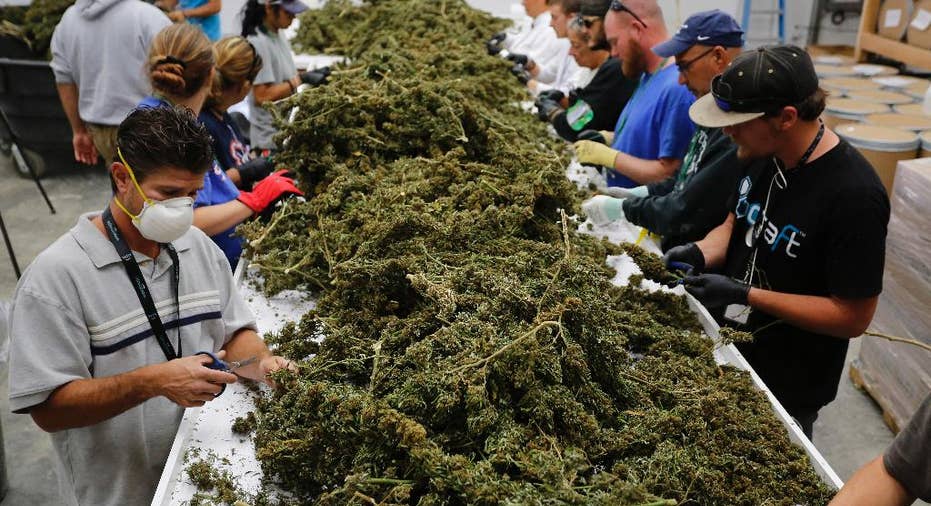5 challenges facing states that wade into legal marijuana

DENVER – Four more states just legalized marijuana for all adults, and more than half the states now allow pot use by people with a long list of ailments. But don't break out the Goldfish and Cheetos just yet.
That's what the Colorado governor famously said after his state and Washington became the first to legalize recreational pot in 2012.
The joke belies an important truth about the nation's evolving marijuana experiment: It's too soon to say how these experiments will turn out. States wading into legal weed are in direct defiance of federal drug law, so they're on their own when it comes to regulating a drug that had been illegal for almost a century.
A look at the top issues facing states that are moving toward legalization:
___
ELIMINATING THE BLACK MARKET
The black market for pot does not go away just because the drug is legal under certain circumstances.
States facing a shifting marijuana regime want to eliminate corner drug dealers and keep drug cartels out of the legal drug game. To do that, governments need to set tax rates that are high enough to cover regulatory costs but not so high that drug dealers decide to stay in the shadows, where they go untaxed and unregulated.
The current marijuana states tax pot at about 30 percent or more. The result is a nagging black-market problem, so new marijuana states may consider a different approach.
___
KEEPING POT AWAY FROM KIDS
When it's illegal to give weed to anybody, there's no need to make it a crime to give marijuana to a minor. States that legalize pot will need to look at their alcohol codes and create new crimes for sharing marijuana with minors or anyone else not authorized to have it.
Public health advocates will call on their states to do more work tracking how many kids are using pot, through youth surveys and by adding school health workers and counselors.
___
KEEPING HIGHWAYS SAFE
States that have legalized pot have seen more drivers arrested for driving high, but overall traffic safety and fatality rates in those states have dropped or remained flat.
Expect to see new marijuana states ramp up police training for spotting stoned drivers. It's also possible that drivers will complain about getting pulled over more often in neighboring states by officers on the lookout for impaired motorists.
___
CONFRONTING EDIBLES AND CONCENTRATES
Smoking doesn't become any less stinky when marijuana becomes legal.
But states with legal marijuana markets have been caught off guard by the popularity of edible and concentrated marijuana, which can be incorporated into a dizzying variety of products as diverse as cookies, pasta sauce and skin cream, even personal lubricant infused with cannabis.
Concentrated pot, as the name suggests, can be quite strong. So states that have joined the marijuana experiment will want to be ready for more calls to poison control, more people showing up at emergency rooms complaining of overindulging in pot and more kids arriving at school with not-so-innocent brownies.
___
KEEPING CULTIVATION GREEN
Public officials who don't want to see fields and backyards full of weed often try to force production into greenhouses, warehouses and basements.
That keeps pot out of public view, but growing it that way requires enormous amounts of electricity and water. And the plants are more susceptible to disease and pests.
Marijuana states have to wrestle with regulating production so that the weed industry doesn't sap energy and water better used elsewhere. They will also need to write their own rules when it comes to pesticides.
___
Kristen Wyatt can be reached at http://www.twitter.com/APkristenwyatt .



















